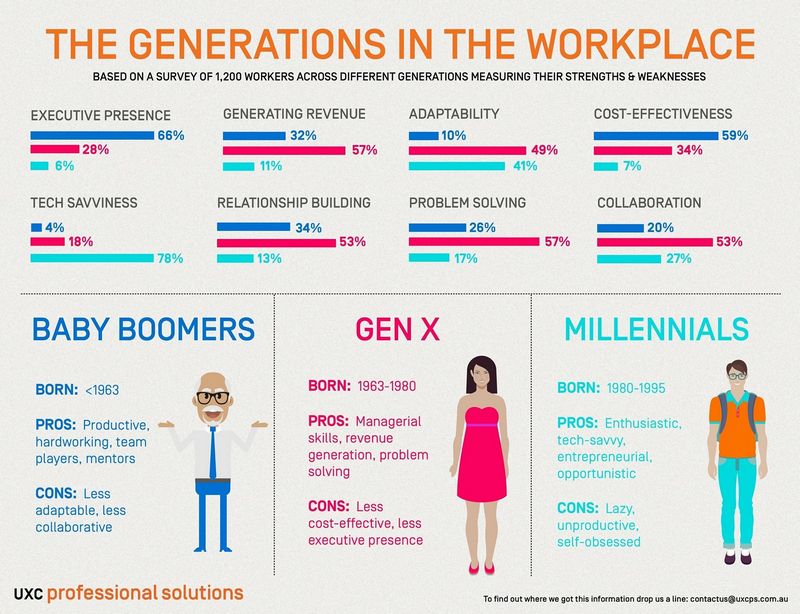- Micro-Targeting: The Future of E-Commerce Marketing
- The rise of e-commerce
- Understanding Micro-Targeting
- Defining micro-targeting
- Targeting specific audience segments
- Benefits of Micro-Targeting
- Increased conversion rates
- Improved customer engagement
- Implementing Micro-Targeting Strategies
- Collecting and analyzing data
- Creating personalized marketing campaigns
- Micro-Targeting Tools and Technologies
- Data analytics platforms
- Artificial intelligence and machine learning
- Case study 1: Company A
- Case study 2: Company B
Micro-Targeting: The Future of E-Commerce Marketing
In the competitive world of e-commerce, personalized messaging and tailored experiences are essential for success. Gone are the days of mass marketing, where generic advertisements were sent out to a wide audience. Today, the key to effective e-commerce marketing lies in micro-targeting.
Micro-targeting harnesses the power of predictive analytics to identify and reach niche markets with precision. By analyzing customer behavior and gathering insights through data-driven marketing, businesses can create personalized marketing strategies that resonate with their target audience.
With micro-targeting, companies can now map out the customer journey and create tailored experiences at every touchpoint. Whether it’s through personalized product recommendations, targeted promotions, or customized web experiences, micro-targeting allows for a truly personalized and engaging e-commerce experience.
One of the key e-commerce trends fueled by micro-targeting is behavioral targeting. By understanding customer preferences, interests, and shopping habits, businesses can deliver highly relevant content and offers, enhancing the likelihood of customer engagement and conversions.
Micro-targeting also plays a significant role in building customer loyalty. By segmenting customers based on their preferences and purchase history, businesses can create personalized loyalty programs that reward customers for their continued support. This not only increases customer satisfaction but also encourages repeat purchases and fosters long-term customer relationships.
To effectively implement micro-targeting strategies, businesses can leverage CRM systems and marketing automation tools. These platforms help collect and organize customer data, providing valuable insights for targeted campaigns.
In conclusion, micro-targeting is revolutionizing e-commerce marketing by delivering personalized experiences that cater to individual customer needs. Through predictive analytics and data-driven strategies, businesses can engage their target audience on a deeper level, driving conversions, and fostering lasting customer relationships in the competitive world of online shopping.
The rise of e-commerce
E-commerce has experienced a dramatic rise in recent years, redefining the way people shop and presenting new opportunities for businesses to connect with customers. One of the key advancements in e-commerce marketing is the ability to offer a personalized experience. With the help of marketing automation and data-driven strategies, businesses can tailor their messaging and product recommendations to suit individual customer preferences. This personalized messaging not only enhances the customer journey but also boosts customer engagement and loyalty.
Micro-targeting has become an essential tool in e-commerce marketing. By leveraging customer insights and predictive analytics, businesses can identify and reach niche markets more effectively. This targeted advertising approach allows companies to deliver relevant content and offers to specific customer segments, increasing the chances of conversion and driving revenue. By understanding customer behavior and preferences, businesses can create personalized marketing campaigns that make online shopping more delightful and efficient.
Customer segmentation has become a vital aspect of e-commerce trends. By segmenting their customer base, businesses can better understand their diverse needs and preferences. This information helps in crafting targeted marketing campaigns that resonate with different customer segments. By leveraging CRM systems and customer data, businesses can create a seamless customer journey, from initial discovery to final purchase. This data-driven marketing approach not only improves customer satisfaction but also enhances customer retention and loyalty.
In the era of e-commerce, businesses have access to a wealth of customer insights that can drive their marketing strategies. By tapping into this customer data, businesses can unlock valuable information about customer behavior, preferences, and purchase patterns. This knowledge can be used to optimize marketing campaigns, improve product recommendations, and personalize the shopping experience. With the right data-driven approach, businesses can stay ahead of the competition and maximize their e-commerce potential.
Understanding Micro-Targeting
In the world of e-commerce marketing, understanding micro-targeting is crucial for businesses to provide a personalized experience for their customers. Micro-targeting involves the use of customer segmentation and predictive analytics to deliver targeted advertising and personalized messaging to specific individuals or groups.
By analyzing customer insights and behavior, businesses can identify the specific needs and preferences of their customers, allowing them to tailor their marketing strategies accordingly. This level of customer understanding not only helps in improving customer loyalty but also boosts customer engagement and drives sales.
Marketing automation plays a significant role in micro-targeting as it allows businesses to automate the process of delivering personalized marketing messages to customers at different stages of their buying journey. With the help of data-driven marketing, businesses can create highly targeted campaigns that resonate with their target audience.
One of the key e-commerce trends is behavioral targeting, which involves tracking and analyzing customer behavior to deliver personalized recommendations and offers. This strategy increases the chances of converting potential customers into buyers by showing them products or services that align with their preferences and interests.
By incorporating micro-targeting into their marketing strategies, businesses can provide a seamless customer journey, from the initial interaction with the brand to the final purchase. This level of personalization not only enhances the overall customer experience but also improves customer satisfaction and helps in building long-term customer relationships.
Overall, micro-targeting is a powerful tool in e-commerce marketing that allows businesses to deliver personalized marketing messages and offers to their target audience. By leveraging customer insights, predictive analytics, and marketing automation, businesses can create highly targeted campaigns that drive engagement, boost customer loyalty, and ultimately increase sales.
Defining micro-targeting
Micro-targeting is a powerful strategy in targeted advertising that focuses on customer segmentation to revolutionize e-commerce marketing. It goes beyond traditional demographics and allows businesses to target specific individuals or small groups based on their unique characteristics and behaviors.
One of the main techniques used in micro-targeting is behavioral targeting, which aims to create a personalized experience for each customer. By analyzing data on customer behavior, preferences, and online activities, businesses can tailor their messaging and offerings to meet individual needs and interests.
This level of personalization is crucial in the customer journey, as it enables businesses to engage customers on a deeper level and create meaningful interactions. By utilizing data-driven marketing and customer insights, businesses can deliver highly personalized marketing campaigns that resonate with customers and drive conversions.
Micro-targeting also takes advantage of e-commerce trends and advancements in technology, such as marketing automation and customer relationship management (CRM) software. These tools enable businesses to automate and streamline their marketing efforts, allowing for more efficient and effective micro-targeting strategies.
In a world where online shopping is increasingly prevalent, understanding customer behavior and preferences is vital for success. Micro-targeting enables businesses to tap into niche markets and target specific customer segments with precision. By employing predictive analytics and leveraging customer data, businesses can anticipate customer needs and deliver personalized marketing messages that drive engagement and conversions.
Targeting specific audience segments
Micro-targeting is revolutionizing e-commerce marketing by allowing businesses to reach specific audience segments with personalized messaging. Through the use of predictive analytics and customer behavior data, companies can now identify niche markets and deliver a tailored and personalized experience to their customers.
With micro-targeting, businesses can implement behavioral targeting strategies that take into account the customer journey and deliver targeted advertising at each stage of the buying process. By understanding customer segmentation and leveraging customer insights, e-commerce marketing can be more effective in reaching and engaging with the right audience.
In today’s e-commerce trends, customer loyalty is crucial, and personalized marketing plays a significant role in fostering customer engagement. By utilizing data-driven marketing and marketing automation, businesses can gather and analyze customer data to create personalized experiences and offer relevant products or services.
Micro-targeting enables businesses to create customized messages that resonate with their customers, resulting in improved customer satisfaction and increased sales. Through targeted advertising and personalized messaging, businesses can demonstrate an understanding of their customers’ needs and preferences, ultimately leading to stronger customer relationships and higher conversion rates.
In the world of online shopping, where the competition is fierce, micro-targeting provides businesses with a competitive advantage. By identifying and reaching specific customer segments, businesses can better tailor their marketing efforts to meet the individual needs of their audience, ultimately driving customer loyalty and driving revenue growth.
Benefits of Micro-Targeting
Micro-targeting revolutionizes e-commerce marketing by providing valuable customer insights. By analyzing and understanding customer behavior and preferences, businesses can identify niche markets and tailor their products and services to meet specific customer needs.
This personalized experience is crucial in the world of online shopping, where customers expect targeted advertising and customized offers. Micro-targeting enables businesses to engage with customers on a deeper level, enhancing customer engagement and increasing the chances of conversion and repeat purchases.
With behavioral targeting and marketing automation, businesses can analyze customer data and create personalized marketing campaigns. By leveraging predictive analytics, businesses can anticipate customer behavior, allowing them to offer relevant products and services at the right time, ultimately increasing customer loyalty and retention.
E-commerce marketing strategies that rely on data-driven marketing and customer relationship management (CRM) can significantly benefit from micro-targeting. It allows businesses to send personalized messaging throughout the customer journey, from the initial research phase to post-purchase follow-ups.
As e-commerce trends continue to evolve, micro-targeting offers businesses a competitive advantage. By understanding customer needs and preferences, businesses can optimize their marketing efforts, improve customer satisfaction, and drive revenue growth.
Increased conversion rates
Customer engagement and customer behavior are vital aspects of successful e-commerce marketing. By leveraging marketing automation and behavioral targeting, businesses can optimize their online shopping experience for each customer. Micro-targeting allows for targeted advertising that is much more effective in capturing the attention of potential customers. By analyzing customer insights and using data-driven marketing techniques, businesses can personalize their messaging and create a more impactful customer journey.
CRM platforms provide a wealth of information about individual customers, allowing for personalized marketing strategies that resonate with their specific needs and preferences. By segmenting customers into niche markets and using predictive analytics, businesses can tailor their marketing efforts to target the right audience. This personalized experience not only increases conversion rates but also fosters customer loyalty and encourages repeat purchases.
With the advent of micro-targeting, businesses can now deliver personalized messages to customers at every stage of their journey. Whether it’s through email marketing, social media ads, or customized landing pages, businesses can engage with customers on a deeper level. This level of personalization not only increases conversion rates but also enhances the overall shopping experience for the customer.
Overall, micro-targeting is a powerful tool in e-commerce marketing. By leveraging customer insights, utilizing data-driven strategies, and delivering personalized experiences, businesses can maximize their conversion rates and stay ahead of the ever-changing e-commerce trends.
Improved customer engagement
Customer segmentation plays a crucial role in achieving improved customer engagement. By dividing customers into various segments based on their demographics, preferences, and behavior, businesses can tailor their marketing efforts to specific target groups. This enables them to create personalized messaging and offers that are more likely to resonate with individual customers, increasing their engagement and interest in the brand.
With customer insights gained through data-driven marketing, businesses can understand their customers’ preferences and behaviors better. This allows them to provide a more personalized experience, which leads to higher levels of engagement. Through marketing automation and CRM systems, businesses can track and analyze customer behavior at different touchpoints along their customer journey, allowing them to deliver targeted advertising and personalized messaging.
Micro-targeting is another strategy that can significantly improve customer engagement. By focusing on niche markets and using behavioral targeting techniques, businesses can deliver highly relevant and personalized advertisements to their target audience. This increases the chances of customer engagement and conversions, as the content resonates with their specific needs and interests.
Personalized marketing in e-commerce is a growing trend that fosters customer engagement. By tailoring messages and offers based on individual customer preferences and behaviors, businesses can create a more personalized shopping experience. This can include personalized recommendations, exclusive discounts, and customized product suggestions, resulting in increased engagement and customer loyalty.
In conclusion, improved customer engagement in e-commerce marketing requires a data-driven approach, including customer segmentation, marketing automation, and personalized messaging. By leveraging customer insights, businesses can create a more personalized and targeted advertising strategy that is more likely to resonate with their target audience. This, in turn, leads to higher levels of customer engagement, increased conversions, and long-term customer loyalty.
Implementing Micro-Targeting Strategies
Behavioral targeting is a critical component of micro-targeting strategies in e-commerce marketing. By analyzing customer behavior and preferences, businesses can create more personalized messaging that resonates with individual customers. This allows for a more tailored and relevant marketing approach.
With micro-targeting, businesses can deliver a personalized experience that meets the specific needs and interests of customers. By utilizing customer insights and data-driven marketing, companies can predict and anticipate customer behavior, enabling them to deliver targeted advertising and messaging at every stage of the customer journey.
Segmenting customers based on their behavior and preferences allows for more effective and efficient marketing strategies. By using CRM and predictive analytics, businesses can identify and target specific customer segments, resulting in higher conversion rates and increased customer loyalty.
In today’s ever-evolving e-commerce landscape, staying up to date with the latest e-commerce trends is essential. Implementing marketing automation and using micro-targeting strategies allows businesses to stay ahead of the competition and provide a personalized marketing experience to their customers.
Micro-targeting is particularly effective in reaching niche markets, as it allows for specific, focused messaging to be tailored to the unique needs and preferences of these customer segments. By implementing micro-targeting strategies, businesses can create a personalized marketing approach that drives engagement and enhances the overall customer experience in the world of e-commerce marketing.
Collecting and analyzing data
You can revolutionize your e-commerce marketing strategy by implementing micro-targeting techniques, which involve collecting and analyzing customer data. By understanding your customers’ preferences and behaviors, you can create personalized messaging that resonates with them on a deeper level.
A Customer Relationship Management (CRM) system is essential for collecting and managing the data needed for effective personalized marketing. With a CRM, you can track customer interactions, purchase history, and other relevant information to tailor your marketing efforts to each individual.
Micro-targeting allows you to focus on niche markets and specific customer segments, enabling you to deliver targeted advertising campaigns that are more likely to resonate with your audience. This not only increases the likelihood of sales but also fosters customer loyalty as customers feel understood and catered to.
By analyzing the data collected through micro-targeting, you gain valuable customer insights and can better understand their behavior. This allows you to implement predictive analytics, anticipating customer needs and preferences, and providing them with a personalized experience that increases customer satisfaction and drives repeat business.
In today’s e-commerce landscape, keeping up with the latest trends in e-commerce marketing is crucial to stay ahead of the competition. Data-driven marketing strategies, such as micro-targeting, customer segmentation, and behavioral targeting, have become essential tools for successful businesses.
Marketing automation plays a vital role in leveraging collected data to enhance customer engagement. With automation tools, you can automate personalized marketing campaigns, ensuring that the right message reaches the right customer at the right time, further increasing the effectiveness of your marketing efforts.
With the power of collecting and analyzing data in e-commerce marketing, you can truly understand your customers and deliver personalized experiences that drive satisfaction, loyalty, and ultimately, sales. Start harnessing the power of data today to transform your e-commerce business.
Creating personalized marketing campaigns
Customer segmentation and customer insights are crucial components in creating successful marketing campaigns in the e-commerce industry. By understanding the specific needs and preferences of different customer segments, businesses can deliver a more personalized and tailored experience to their target audience.
Micro-targeting is an effective strategy that allows businesses to focus their marketing efforts on niche markets. By identifying and targeting specific groups of customers with similar characteristics or interests, businesses can create highly relevant and personalized messaging that resonates with their audience.
E-commerce marketing has become increasingly data-driven, with businesses leveraging customer data to fuel their marketing campaigns. By analyzing customer behavior and purchase patterns, businesses can better understand their customers and deliver personalized experiences that drive customer loyalty.
Behavioral targeting is another powerful technique in creating personalized marketing campaigns. By tracking a customer’s online activity, businesses can understand their preferences and deliver targeted advertising that aligns with their interests and needs throughout their customer journey. This not only increases customer engagement but also boosts conversion rates.
Utilizing marketing automation tools and CRM systems, businesses can automate the process of delivering personalized messaging to customers. This allows them to engage with their audience more efficiently and consistently, providing a seamless and personalized experience throughout the entire customer journey.
Personalized marketing is a significant trend in e-commerce, driven by the increasing demand for personalized experiences from customers. By leveraging predictive analytics, businesses can anticipate customer needs and preferences, allowing them to deliver highly targeted and relevant marketing campaigns that resonate with their audience.
In conclusion, creating personalized marketing campaigns is essential in the competitive e-commerce industry. By leveraging customer segmentation, micro-targeting, and data-driven marketing techniques, businesses can deliver a personalized experience that drives customer loyalty and engagement. With the significant advancements in technology and analytics, personalized marketing has become a powerful tool for businesses to stay ahead in the ever-evolving e-commerce landscape.
Micro-Targeting Tools and Technologies
Micro-targeting is an essential strategy in e-commerce marketing that utilizes advanced tools and technologies to optimize customer engagement and drive sales. This approach combines behavioral targeting, data-driven marketing, and marketing automation to deliver personalized messaging and create a unique customer experience.
With the rise of online shopping and changing customer behavior, e-commerce trends have shifted towards more personalized and tailored experiences. Micro-targeting allows businesses to gain deep insights into customer preferences and behaviors, enabling them to segment their audience and create highly targeted advertising campaigns.
By analyzing customer data using predictive analytics, businesses can understand the customer journey and deliver personalized marketing messages at every stage. This level of personalization increases customer engagement and leads to higher conversion rates.
Micro-targeting tools and technologies also enable businesses to identify and target niche markets more effectively. With customer segmentation, businesses can identify and understand specific customer groups, allowing them to create personalized experiences and tailored offers that resonate with each segment.
Furthermore, micro-targeting tools can integrate with customer relationship management (CRM) systems, providing a seamless flow of information and ensuring a holistic approach to customer engagement. By leveraging advanced algorithms and machine learning, businesses can deliver personalized messaging and offers in real-time, based on customer behavior and preferences.
In conclusion, micro-targeting is revolutionizing e-commerce marketing by leveraging behavioral targeting, data-driven marketing, and targeted advertising to deliver personalized experiences. By understanding customer behavior and preferences, businesses can engage customers on a deeper level, enhance their shopping experience, and drive sales. Embracing micro-targeting tools and technologies is crucial in today’s hyper-competitive e-commerce landscape.
Data analytics platforms
Are you looking to stay ahead of the game in the competitive world of e-commerce marketing? Look no further than data analytics platforms. These powerful tools harness the power of predictive analytics to help you make data-driven decisions that will supercharge your marketing strategies.
With e-commerce trends constantly evolving, it’s essential to stay on top of the latest advancements. Data analytics platforms provide you with valuable insights into customer behavior, allowing you to understand their preferences and tailor your marketing efforts accordingly. By analyzing customer loyalty and the customer journey, you can create personalized messaging that will resonate with your target audience.
One of the key features of data analytics platforms is micro-targeting. This powerful technique allows you to segment your customers into niche markets and deliver targeted advertising that speaks directly to their interests and needs. By engaging customers on a personal level, you can build strong relationships and increase customer engagement.
Data analytics platforms also offer powerful CRM capabilities, enabling you to manage customer relationships effectively. By collecting and organizing customer data, you can automate marketing processes and optimize customer interactions. From personalized marketing campaigns to marketing automation, these platforms provide you with the tools you need for success in e-commerce marketing.
So, if you’re ready to take your e-commerce marketing to the next level, invest in a data analytics platform today. Unlock the power of customer insights and drive your business forward in an increasingly competitive online shopping landscape.
Artificial intelligence and machine learning
Unlock the power of artificial intelligence and machine learning to gain valuable customer insights and transform your e-commerce marketing strategy. By analyzing vast amounts of data, AI and machine learning can help you understand your customer journey and identify key touchpoints to optimize their online shopping experience.
With micro-targeting, you can take advantage of the latest e-commerce trends and deliver personalized marketing messages to specific segments of your audience. By using marketing automation and targeted advertising, you can reach niche markets with precision and drive customer loyalty.
Provide a personalized experience and enhance customer engagement by leveraging AI and machine learning. Understand customer behavior through predictive analytics and segment your audience for data-driven marketing campaigns.
Take advantage of personalized messaging and behavioral targeting to deliver tailored offers and recommendations to your customers. With AI and machine learning, you can create dynamic product recommendations based on each customer’s unique preferences and past purchase history.
Data-driven marketing powered by AI and machine learning enables you to segment your audience and target specific customer segments with personalized content. By understanding customer preferences and interests, you can deliver relevant messaging that resonates with each individual.
Embrace the power of artificial intelligence and machine learning in e-commerce marketing to revolutionize the way you approach customer engagement and drive business growth.
Case Studies: Successful Micro-Targeting Campaigns
Micro-targeting has revolutionized e-commerce marketing by allowing businesses to create personalized marketing campaigns that cater to individual customers. By analyzing customer behavior and utilizing advanced customer segmentation techniques, businesses can identify niche markets and tailor their marketing strategies accordingly. These successful case studies demonstrate the power of micro-targeting in driving customer engagement and increasing sales.
One case study involves a clothing retailer that used predictive analytics and customer relationship management (CRM) tools to deliver targeted advertising to their customers. By analyzing customer data, they were able to understand customer preferences and create personalized messaging that resonated with each individual. This approach resulted in increased customer engagement and loyalty, as customers felt that the brand understood their unique needs and preferences.
Another case study highlights the success of a beauty brand that used behavioral targeting to create a personalized experience for their customers. Through data-driven marketing, they identified specific customer segments based on their online shopping behavior and interests. They then created tailored marketing campaigns that showcased products and offers that aligned with each customer’s preferences. This personalized approach resulted in higher conversion rates and increased customer satisfaction.
These case studies demonstrate the growing importance of micro-targeting in the e-commerce industry. As customers increasingly expect personalized experiences and messaging, businesses that can effectively utilize micro-targeting techniques to deliver relevant content and offers will have a competitive advantage. By leveraging data and analytics, businesses can gain valuable customer insights and create more targeted and effective marketing campaigns.
Case study 1: Company A
Company A is a leading player in personalized marketing, utilizing advanced techniques such as behavioral targeting and micro-targeting in their e-commerce marketing strategy. With a deep understanding of customer behavior and preferences, they are able to deliver personalized messaging to consumers during their online shopping experience.
By offering a personalized experience, Company A can build stronger customer relationships and increase customer loyalty. Through targeted advertising based on customer segmentation and data-driven marketing, they are able to reach niche markets more effectively and engage customers in a meaningful way.
Company A leverages customer relationship management (CRM) systems and marketing automation tools to streamline their marketing efforts. These tools allow them to collect and analyze customer data, enabling them to create personalized campaigns based on predictive analytics. This data-driven approach ensures that customers receive personalized messages at appropriate stages of their customer journey.
With micro-targeting becoming one of the key e-commerce trends, Company A stays ahead of the competition by continuously refining their strategies and adapting to evolving customer needs. They understand that in today’s digital age, customers expect tailored experiences tailored to their unique preferences and interests.
Through their innovative marketing techniques and personalized approach, Company A has successfully increased customer engagement and driven sales growth. By delivering relevant content and offers to their customers, they are able to create a personalized experience that resonates with their target audience. This attention to detail and focus on customer satisfaction has positioned Company A as a leader in the e-commerce industry.
Case study 2: Company B
Company B, a leading online shopping platform, successfully transformed their e-commerce marketing strategy through the implementation of marketing automatio







